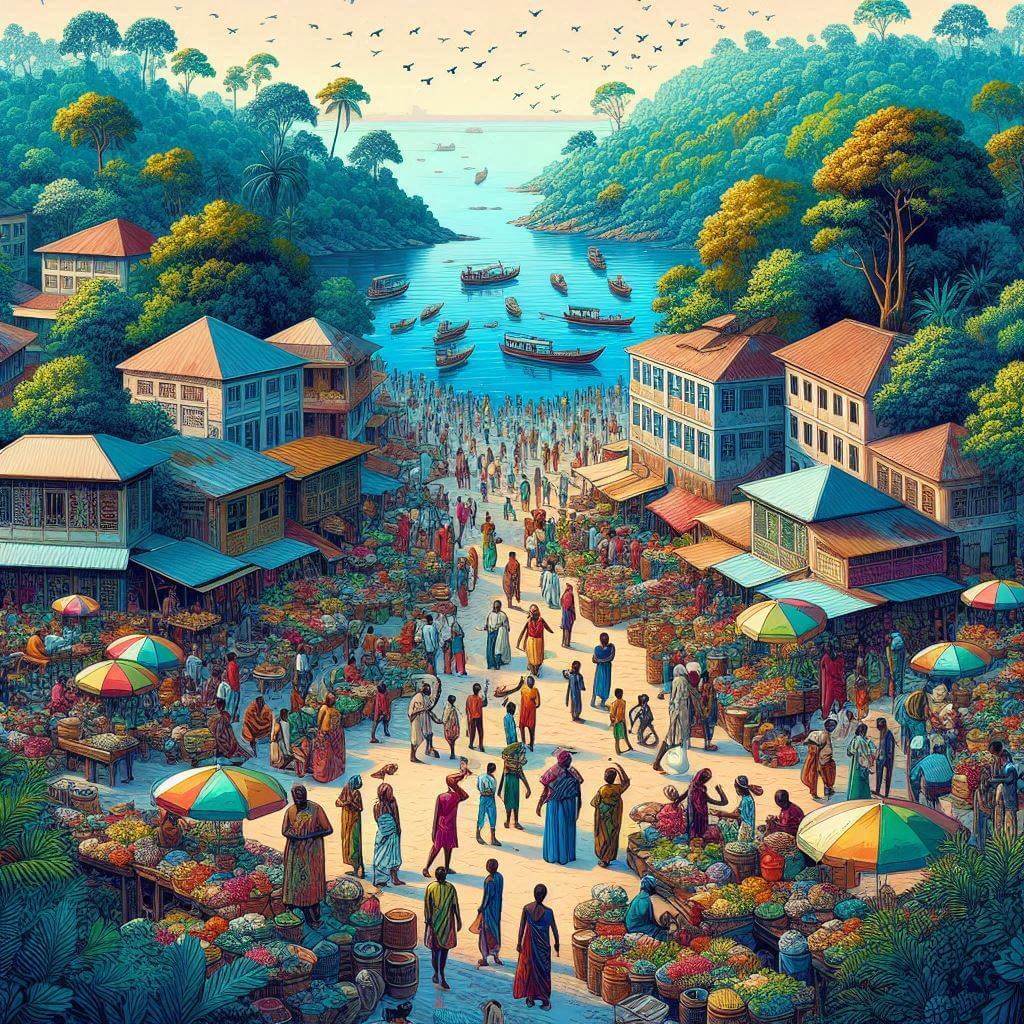The flag of Sierra Leone consists of three equal horizontal stripes of green, white, and blue. This tricolor design represents the nation's natural resources, unity, and aspirations for peace and progress.
Sierra Leone information
| National Flag Day | April 27 |
| Sovereign state | Yes |
| Official name | Republic of Sierra Leone |
| Capital | Freetown |
| Population | 7,976,983 |
| Area | 71,740 km² |
| Currency | Sierra Leonean leone (SLL) |
| Language | English |
| Continent | Africa |
| Region | West Africa |
| Subregion | — |
| Borders | Guinea, Liberia |
| Timezone | Greenwich Mean Time (GMT) UTC±0 |
| Calling code | +232 |
| Top-level domain | .sl |
History of the Sierra Leone Flag
 The flag was officially adopted on April 27, 1961, coinciding with Sierra Leone's independence from British colonial rule. Its design was carefully chosen to represent the new nation's identity, resources, and hopes for the future.
The flag was officially adopted on April 27, 1961, coinciding with Sierra Leone's independence from British colonial rule. Its design was carefully chosen to represent the new nation's identity, resources, and hopes for the future.
Each color on the flag holds significant symbolism:
- Green: Represents the country's agriculture and lush mountains, symbolizing the fertile land and natural resources of Sierra Leone.
- White: Symbolizes unity and justice among the diverse ethnic groups of Sierra Leone, promoting peace and harmony.
- Blue: Stands for the sea and the natural harbor of Freetown, the capital city of Sierra Leone, highlighting the nation's maritime heritage and coastal beauty.
Symbolism and Design of the Sierra Leone Flag
The flag's design is simple yet powerful in its representation of Sierra Leone's identity and aspirations. The green stripe at the top represents the country's agricultural wealth and its lush, mountainous landscapes. Agriculture remains a crucial sector of Sierra Leone's economy, and this color reflects the nation's commitment to sustainable development of its natural resources.
The white stripe in the middle symbolizes unity and justice. It represents the hope for peace and harmony among Sierra Leone's diverse ethnic groups, which include the Temne, Mende, Limba, and Krio peoples, among others. This emphasis on unity is particularly significant given the country's history of civil conflict and its ongoing efforts at reconciliation and nation-building.
The blue stripe at the bottom represents the sea, specifically the natural harbor of Freetown, which has played a crucial role in the country's history and economy. It also symbolizes hope, reflecting the nation's aspirations for a bright and prosperous future.
Usage and Significance of the Sierra Leone Flag
 The flag of Sierra Leone is a symbol of national pride and identity, prominently displayed on government buildings, schools, and during national celebrations such as Independence Day on April 27th. It represents Sierra Leone in international forums, sporting events, and cultural exchanges, serving as a visual embodiment of the nation's sovereignty and values.
The flag of Sierra Leone is a symbol of national pride and identity, prominently displayed on government buildings, schools, and during national celebrations such as Independence Day on April 27th. It represents Sierra Leone in international forums, sporting events, and cultural exchanges, serving as a visual embodiment of the nation's sovereignty and values.
In Sierra Leonean culture, the flag is often incorporated into traditional clothing and art, reflecting its importance as a unifying symbol that transcends ethnic and regional differences.
Interesting Facts About Sierra Leone and Its Flag
- Sierra Leone is known as the "Lion Mountains," a name derived from the shape of its coastal mountains as seen by Portuguese explorers in the 15th century.
- The country played a significant role in the abolition of slavery, with Freetown established in 1787 as a settlement for freed slaves.
- Sierra Leone is home to the third-largest natural harbor in the world, which is represented by the blue stripe on its flag.
- The country is renowned for its diamond resources, although this is not directly represented in the flag's symbolism.
- Sierra Leone has made significant strides in peace-building and democratic governance since the end of its civil war in 2002, embodying the unity and justice symbolized by the white stripe on its flag.